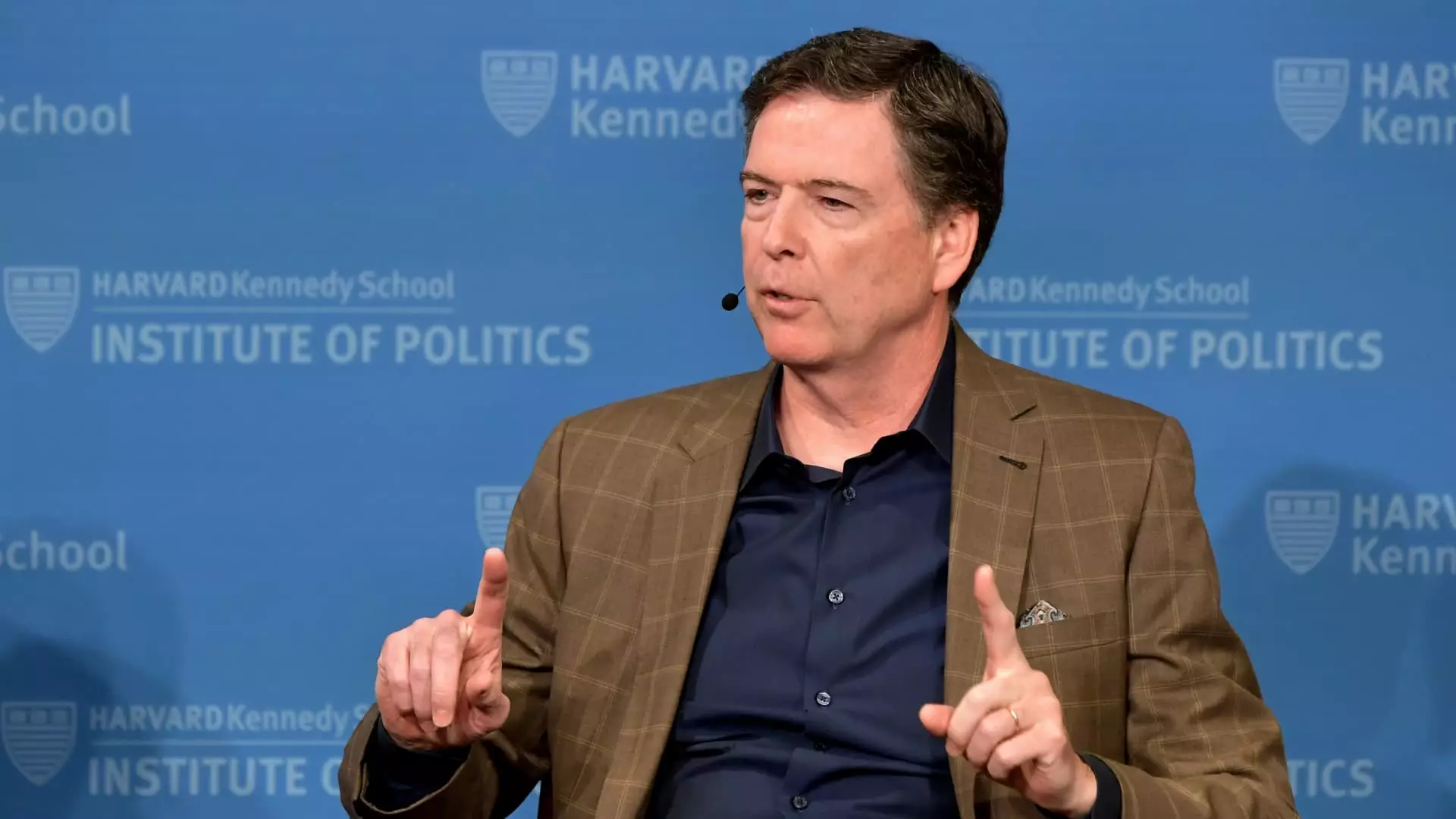In a world where social media has become the primary arena for political discourse, the implications of our words can no longer be dismissed as mere rambles in the public square. The recent uproar surrounding former FBI Director James Comey’s now-deleted Instagram post is a glaring example of how quickly rhetoric can escalate into accusations of an incitement to violence. The post, showcasing what Comey termed a “shell formation” on the beach depicting the numbers “8647,” was met with alarm by numerous political figures who perceived it as a thinly veiled threat against President Donald Trump. This incident not only raises questions about the interpretation of language in our polarized atmosphere but also emphasizes the responsibility that comes with public messaging.
The Interpretation of 8647: A Code or Coincidence?
To the casual observer, “8647” might seem benign—a series of numbers displayed whimsically on a beach. However, amidst the political turmoil of the last few years, such innocuous symbols can swiftly morph into harbingers of ideological warfare. Critics, including Homeland Security Secretary Kristi Noem, have fervently condemned Comey’s post, seeing it as a call to arms against the President. This perception is fortified by the informal meaning of “eighty-six,” which can imply getting rid of something. This brings to light an uncomfortable reality: in today’s hypercharged environment, interpretation often outstrips intention, resulting in a cacophony of outrage where every whisper can be misconstrued as a battle cry.
When Accountability Meets Zealous Reactions
Comey’s assertion that he did not intend to incite violence—and his decision to remove the post in light of public backlash—opens a window into the complexities of accountability. While free speech remains a cornerstone of our democratic society, it must be tempered with responsibility, especially for figures of significant public influence. Accusations from Donald Trump Jr. and others calling Comey’s words a casual suggestion of assassination highlight a worrying trend: the swift decline into extreme interpretations that prioritize sensationalism over dialogue. In a time when politicians amplify their criticisms through social media platforms, where likes and retweets often trump thoughtful discussion, discerning between a moment of genuine expression and an incitement to violence has become nothing short of a herculean task.
Calls for Action: The Political Circus Unleashed
In response to Comey’s post, Republican figures have escalated the rhetoric, with calls for his arrest and dramatic statements suggesting he should face a severe legal reckoning for such perceived transgressions. These reactions reveal a broader problem within our political landscape, where accusations of treason or calls for violence against politicians often serve as rallying cries rather than calls for civility. The political climate intensifies when reactions become knee-jerk responses shaped by underlying vendettas rather than measured discernment. Comey, once a figure of considerable respect, has now navigated the treacherous waters of political animosity that defined much of his tenure with the FBI.
A History That Cannot Be Forgotten
The historical context of Comey’s relationship with Trump further complicates this unfolding drama. Their association dates back to Trump’s controversial 2016 campaign, when Comey initiated an inquiry into Russian interference—a subject still hotly debated today. The subsequent firing of Comey by Trump, swirling in allegations of partisanship and misconduct, serves as a backdrop to the present controversy. Comey’s removal was justified at the time by claims of mismanagement regarding investigations into Hillary Clinton. This series of events hasn’t just shaped Comey’s career trajectory but has also forged a perception among both supporters and opponents that he is a political pawn rather than a protector of justice.
In an era rife with distrust and divisiveness, the stakes are incredibly high. The flames ignited by a single social media post require a moment’s pause for critical reflection, rather than diving headfirst into accusations that can further fracture an already splintered society. True accountability demands a thorough examination of intent as much as it demands awareness of context. In today’s climate, where every word carries the weight of potential violence and outrage, it is essential that public figures like Comey are cautious, not just in their words, but also in acknowledging the potent mix of history and interpretation that defines our current political reality.

Leave a Reply